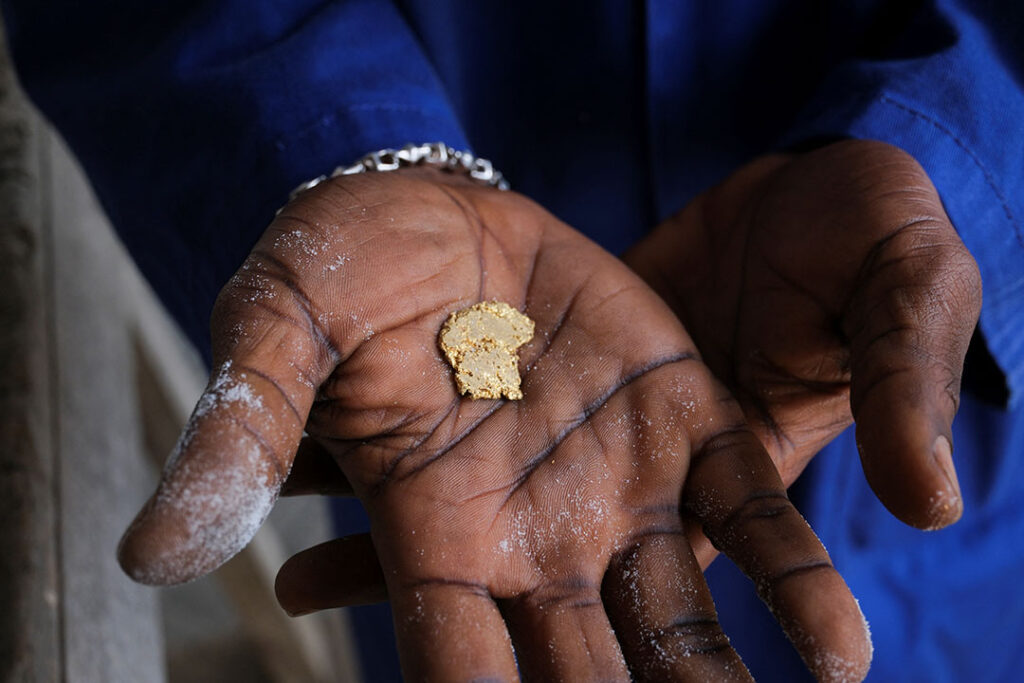Ghanaian authorities are promising to punish Chinese nationals involved in illegal gold mining as the government tries to reduce the environmental and societal damage being caused by the small-scale mining known as galamsey.
“The laws of Ghana will deal ruthlessly with Chinese nationals engaged in illegal mining,” Dr. Hannah Louisa Bissiw-Kotei, administrator for Ghana’s Mineral Development Fund, said during a recent media briefing.
Meanwhile, Chinese authorities have attempted to deflect blame from Chinese nationals goldmining in the country, saying the Ghanaian government and its people are the ones behind illegal gold mining and the damage it causes.
Observers say that many of the Chinese nationals caught at galamsey sites are poorly educated people from rural parts of China, suggesting that there is an organized system to recruit them and bring them to Ghana. From 2008 to 2013, over 50,000 Chinese nationals entered the country to mine gold illegally.
The ongoing crackdown on galamsey has netted dozens of Chinese nationals in recent months.
In late July, authorities with Ghana’s National Anti-Illegal Mining Operation Secretariat (NAIMOS) Task Force arrested 11 Chinese nationals and seized a bulldozer and other mining equipment in the Savannah Region.
In June, four Chinese men were arrested and led in handcuffs from a mining site in Atatam, a community in the Ashanti region, according a video published by GhanaWeb.
An earlier galamsey raid in Bui Sobinso ended with 14 Chinese nationals arrested.
Bissiw-Kotei told a local radio program in late June that she had been approached by someone seeking to get her to release jailed Chinese nationals. She implied that she had been offered a bribe that she refused.
“I made it clear that it would not be possible,” she said. “They have caused destruction and must face the consequences.”
Galamsey has a long history in Ghana but has grown into a crisis with the arrival of tens of thousands Chinese nationals and the increase in gold prices to more than $3,300 per ounce ($107 per gram). In the Ashanti region, galamsey mining is poisoning water sources with mercury, stripping forests and eroding the soil.
The changes to the landscape also are damaging or destroying farmland used to grow cocoa, one of Ghana’s largest exports.
“The once pristine landscapes have been destroyed by illegal mining,” Mohammed Hotor told the World Cocoa Foundation last year. Hotor is a member of the Dinkyiea traditional council and a purchasing clerk for the local Cocoa Merchants Ltd.
“Galamsey activities have left deep scars on the earth,” said Hotor, whose community is trying to restore a former mining site in hopes of using it to grow cocoa again.
Streams and rivers polluted by galamsey carry mercury, sediment and other contaminants downstream to the Gulf of Guinea. There, they poison fish, jeopardizing the lives and livelihoods of artisanal fishers in Ghana’s coastal waters.
“People are ready to destroy the land, destroy water bodies, destroy communities, destroy livelihoods,” Bissiw-Kotei told reporters while surrounded by excavating machines at the Atatam site.
The arrests of Chinese nationals has increased tensions between Ghana and China. China’s ambassador to Ghana, Tong Defa, cast the blame for galamsey damage on Ghanaians and accused them of being ungrateful for the things China has done in Ghana. He also said those arrested are migrant workers simply trying to earn a living.
The repeated arrests of Chinese national Aisha Huang suggest otherwise, however.
Dubbed the “galamsey queen,” she was previously arrested in 2017 for illegal gold mining and deported under a suspended sentence. She was re-arrested and jailed when she returned to Ghana. In 2022, media accounts reported that she had two Chinese passports with different identities.
Huang began serving a four-year jail term in late 2023 and was fined $4,000 for her involvement in illegal gold mining. Huang was sentenced under an old law that imposed a five-year term for foreign nationals involved in galamsey. Revisions in 2019 boosted that penalty to a minimum of 15 years.
Ghanaian authorities say Huang will be deported again after she completes her sentence.

